
What is the Importance of Hydraulic Cylinders for Trailers in Effective Load Management
In the realm of logistics and transportation, the significance of hydraulic cylinders for trailers cannot be overstated, particularly when it comes to effective load management. According to a report by the International Journal of Engineering Research and Applications, the demand for efficient loading and unloading systems has surged, with a projected growth rate of 5.7% annually in the trailer industry, alongside an increasing need for safety and stability in cargo transport.
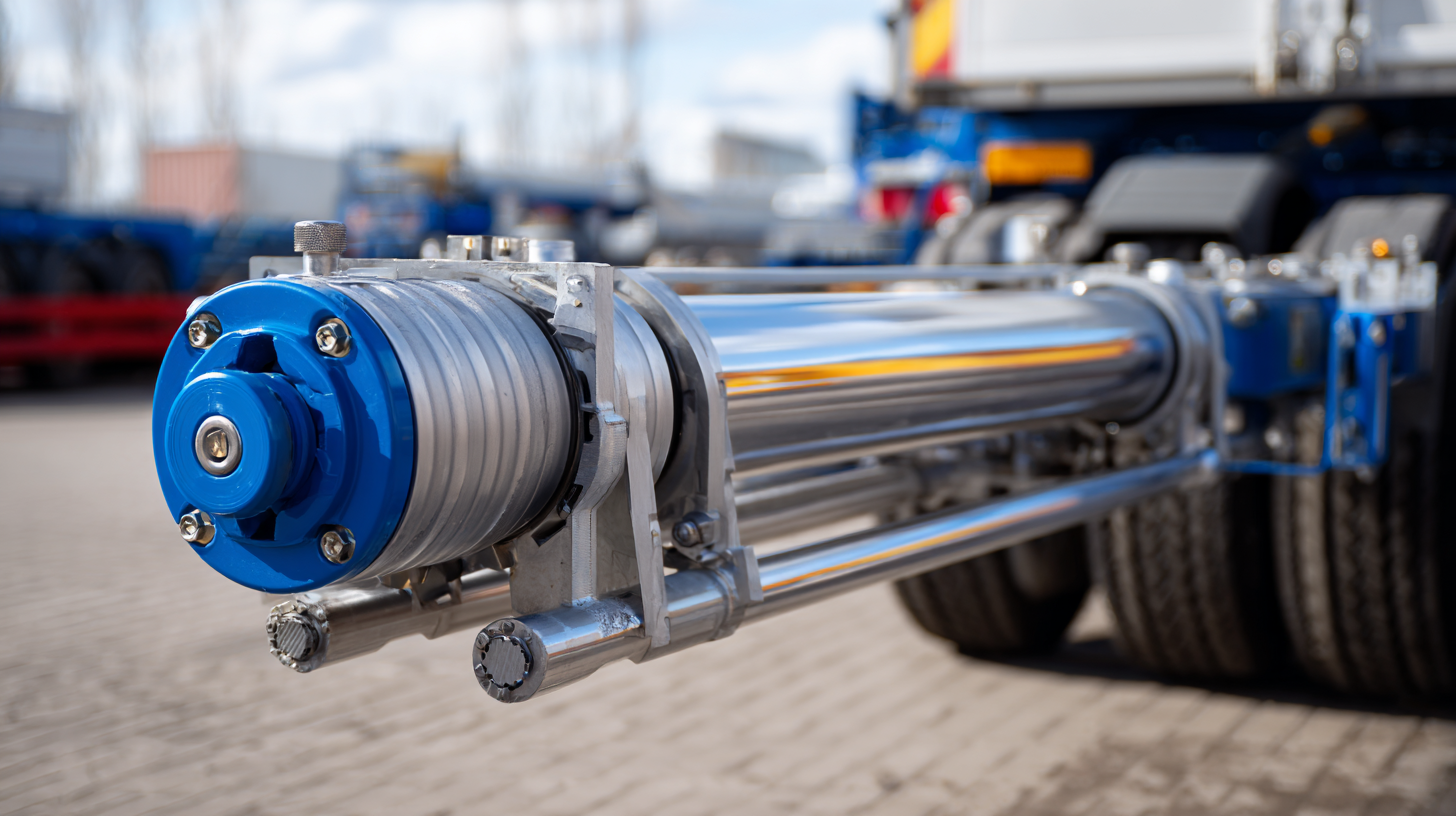
Hydraulic cylinders for trailers play a critical role in achieving this efficiency, allowing for precise control of heavy loads and enhanced maneuverability. By facilitating smooth, controlled movements, these components enable operators to optimize load distribution, minimize wear on trailers, and ensure compliance with safety regulations. As the logistics sector continues to evolve, understanding the pivotal role of hydraulic cylinders is essential for enhancing performance and reliability in trailer operations.
Understanding Hydraulic Cylinders: Key Features That Enhance Trailer Performance
Hydraulic cylinders play a crucial role in enhancing the performance of trailers by facilitating effective load management. These cylinders are designed to generate significant force through hydraulic pressure, which allows for smoother lifting, lowering, and overall manipulation of heavy loads. One of the key features of hydraulic cylinders is their ability to provide precise control over the trailer’s movements, enabling operators to adjust the load distribution and positioning with accuracy. This precision is vital when handling sensitive or uneven loads, as it helps maintain balance and stability during transport.
Another important feature of hydraulic cylinders is their durability and resistance to harsh operating conditions. Built to withstand extreme pressures and environmental factors, high-quality hydraulic cylinders ensure the longevity of trailer operations. Additionally, they come equipped with safety mechanisms that prevent overload, thus protecting both the trailer and its cargo. The combination of strength, control, and safety provided by hydraulic cylinders not only enhances trailer performance but also contributes to safer, more efficient logistics. This makes them an indispensable component for anyone involved in load management, ensuring that trailers can perform optimally under various conditions.
The Role of Hydraulic Cylinders in Load Distribution and Stability
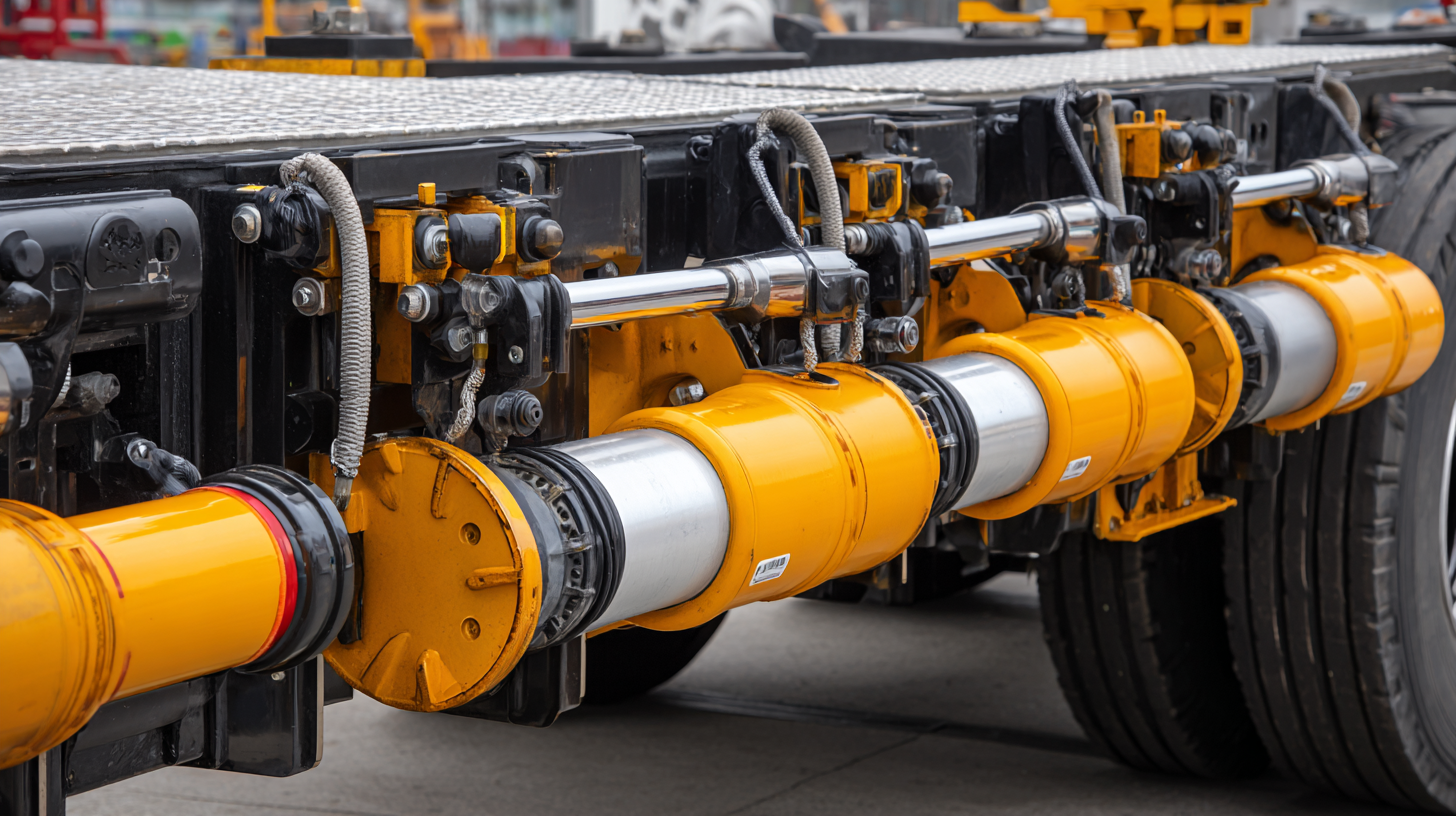 Hydraulic cylinders play a pivotal role in optimizing load distribution and stability for trailers. By utilizing hydraulic power, these cylinders facilitate the smooth and balanced transfer of weight across the trailer, ensuring that the load remains evenly distributed. This is crucial for maintaining the structural integrity of both the trailer and the vehicle towing it. Uneven weight distribution can lead to swaying or tipping, heightening the risk of accidents. Hydraulics assist in adjusting the height and angle of the trailer, which in turn allows for better alignment with the towing vehicle, enhancing overall stability.
Hydraulic cylinders play a pivotal role in optimizing load distribution and stability for trailers. By utilizing hydraulic power, these cylinders facilitate the smooth and balanced transfer of weight across the trailer, ensuring that the load remains evenly distributed. This is crucial for maintaining the structural integrity of both the trailer and the vehicle towing it. Uneven weight distribution can lead to swaying or tipping, heightening the risk of accidents. Hydraulics assist in adjusting the height and angle of the trailer, which in turn allows for better alignment with the towing vehicle, enhancing overall stability.
Moreover, the effectiveness of hydraulic cylinders in load management significantly impacts the performance and safety of the trailer. They allow operators to make precise adjustments in real-time, accommodating varying load sizes and shapes. This adaptability not only improves the handling characteristics of the trailer but also minimizes wear and tear on tires and suspension systems. With reliable hydraulic systems in place, drivers can confidently navigate different terrains and road conditions, knowing that the stability of their load is well-managed, promoting a safe and efficient hauling experience.
How Hydraulic Cylinders Improve Efficiency in Heavy Load Operations
Hydraulic cylinders play a critical role in enhancing the efficiency of heavy load operations on trailers. By converting hydraulic pressure into mechanical force, these cylinders facilitate the smooth lifting and lowering of substantial loads, allowing operators to manage weight distribution more effectively. This capability not only improves safety by reducing the risk of tipping or instability during transport but also maximizes productivity by enabling faster loading and unloading processes.
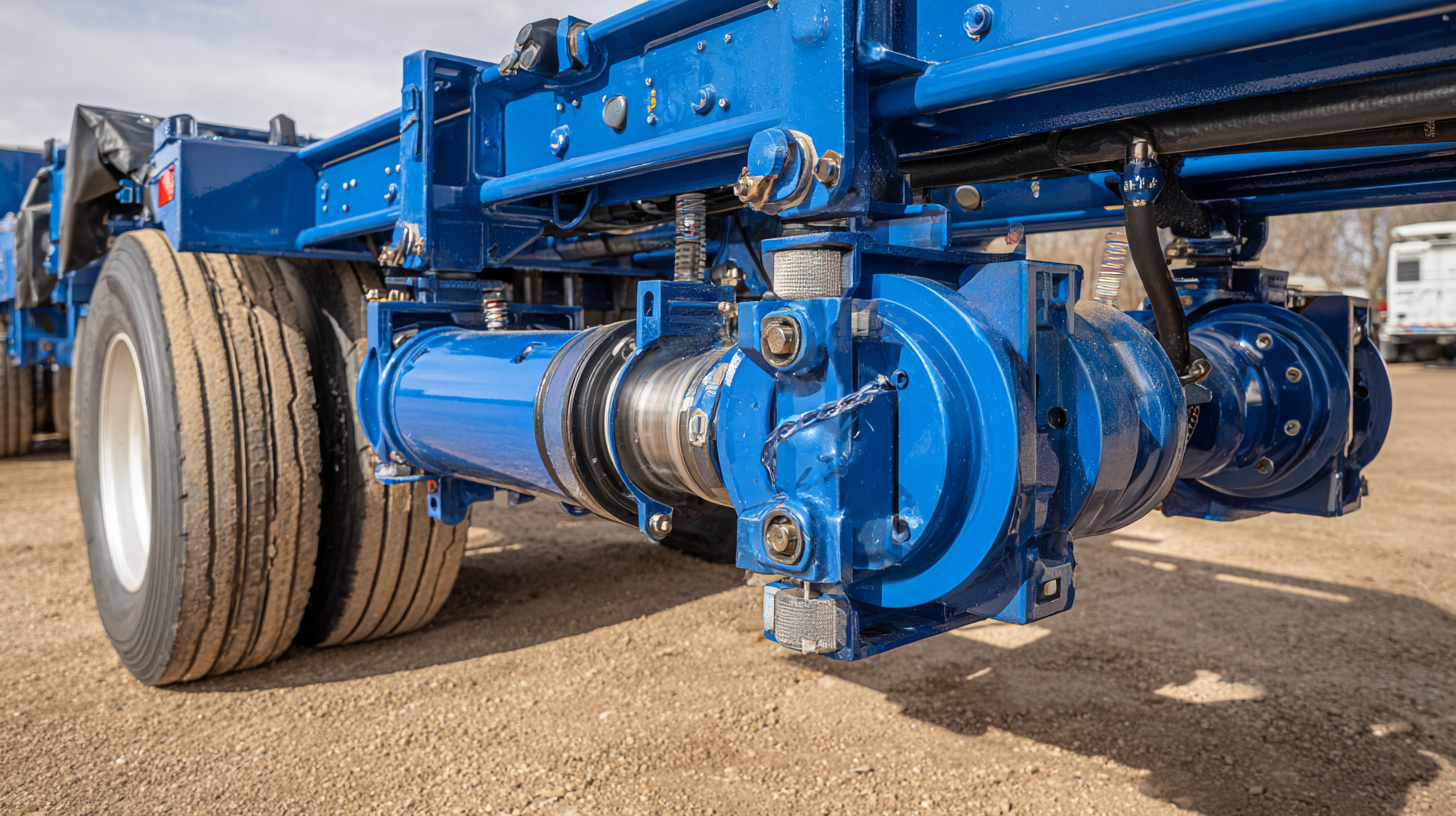
Moreover, the precision offered by hydraulic systems allows for fine-tuned control over the positioning of loads. Operators can adjust the height and angle with ease, ensuring that loads are balanced and secure throughout transit. This is particularly beneficial in industries like construction and logistics, where the timely and safe delivery of heavy materials is paramount. The efficiency gained through hydraulic cylinders enables companies to optimize their operations, ultimately leading to reduced labor costs and improved turnaround times.
Maintenance Tips for Maximizing the Lifespan of Hydraulic Cylinders
Hydraulic cylinders play a crucial role in managing loads effectively in trailers, helping to ensure safety and efficiency in transportation. Proper maintenance of these components is essential to maximize their lifespan and maintain optimal performance. According to industry research by the National Association of Trailer Manufacturers, regular servicing and inspections can extend the lifespan of hydraulic cylinders by up to 30%.
To ensure that your hydraulic cylinders remain in good working condition, here are some maintenance tips. First, regularly check for leaks around the seals and fittings. Leaks can lead to a decrease in performance and pose safety risks. Secondly, keep the cylinders clean and free from debris, as dirt can cause premature wear and tear. It's recommended to use a soft cloth and hydraulic fluid compatible with your system for cleaning.
Additionally, consider regularly inspecting the hydraulic lines and connections for any signs of wear or damage. Replacing components at the first sign of deterioration can prevent more significant issues from arising and keep your trailer operating smoothly. According to a report from the Hydraulic Institute, proactive maintenance can result in significant cost savings by reducing the risk of breakdowns and increasing uptime.
Importance of Hydraulic Cylinders for Trailers in Effective Load Management
Understanding the metrics related to hydraulic cylinders is crucial for effective load management. The chart above shows the importance of various parameters such as load capacity, cylinder diameter, maintenance frequency, and expected lifespan. Proper maintenance enhances performance and longevity of hydraulic cylinders.
Comparative Analysis: Hydraulic Vs. Mechanical Systems in Trailers
In the realm of trailers, effective load management is paramount, and the choice between hydraulic and mechanical systems plays a crucial role. Hydraulic systems, known for their powerful lifting capabilities, can exert pressure up to 2000 psi, enabling them to handle heavier loads with ease. According to a report by the European Trailer Manufacturer Association, trailers equipped with hydraulic cylinders demonstrate a 30% increase in efficiency when transporting heavy loads compared to their mechanical counterparts. This efficiency translates to reduced wear and tear on the trailer, prolonged service life, and ultimately lower maintenance costs.
Conversely, mechanical systems, while simpler and often less expensive upfront, have limitations in terms of load capacity and flexibility. A 2021 study published in the Journal of Trailer Engineering revealed that mechanical systems can only support a fraction of the weight that hydraulic systems can manage, making them less suitable for heavy-duty applications. Additionally, mechanical systems require more manual adjustments and can be hindered by the conditions of the load or terrain, leading to potential delays and operational inefficiencies. Thus, for professionals in the logistics and transportation sectors, aligning cargo requirements with the right trailer system remains essential for optimizing performance and ensuring safety on the road.
What is the Importance of Hydraulic Cylinders for Trailers in Effective Load Management - Comparative Analysis: Hydraulic Vs. Mechanical Systems in Trailers
| Feature | Hydraulic System | Mechanical System |
|---|---|---|
| Load Capacity | High (up to 30 tons) | Moderate (up to 15 tons) |
| Speed of Operation | Fast response time | Slower due to mechanical components |
| Maintenance Requirement | Regular check-ups, fluid replacements | Occasional lubrication, less frequent |
| Weight | Heavier due to hydraulic components | Lighter and simpler design |
| Cost | Higher initial investment | Lower initial investment |
| Flexibility | Can handle different loads and adjustments | Limited to fixed configurations |
| Durability | Highly durable with proper maintenance | Durable but can wear out faster under heavy use |
Related Posts
-
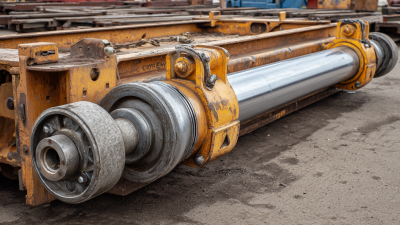
A Comprehensive Guide to Selecting the Best Hydraulic Cylinder for Your Trailer Needs
-
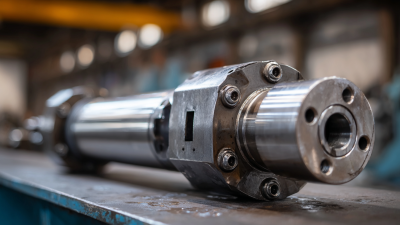
Ultimate Guide to Choosing the Best Hydraulic Oil Cylinder for Your Needs
-
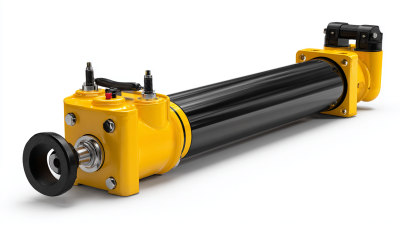
Ultimate Checklist for Choosing the Right Hydraulic Cylinder for Your Forklift
-

Top Strategies for Enhancing Performance of Hydraulic Oil Cylinders
-

Hydraulic Cylinder For Trailer Common Issues Impacting Performance and Longevity
-

7 Essential Tips to Maximize Efficiency with Hydraulic Oil Cylinders: Improve Performance by 30%!
